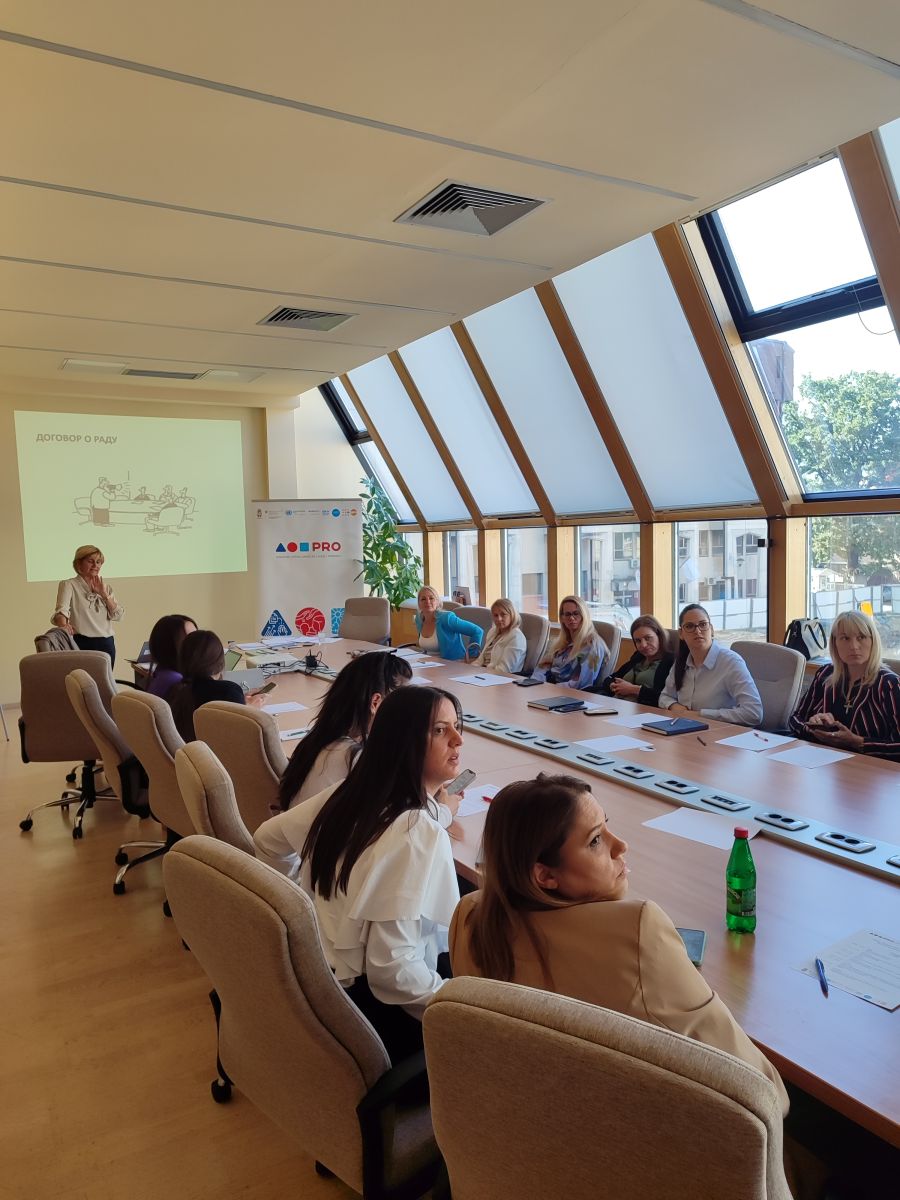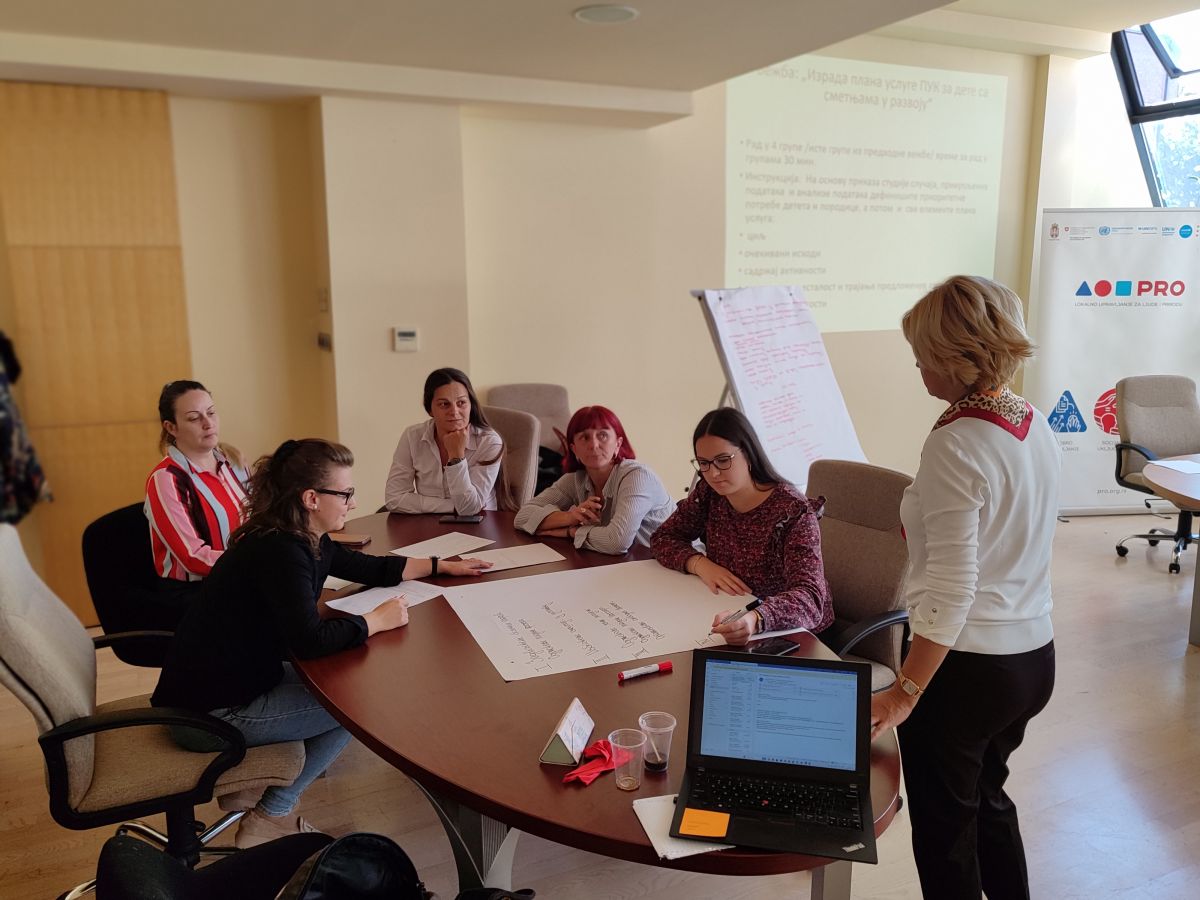Training Held for Providing Home Care Services for Children with Disabilities
A training for providing home care services for children with developmental disabilities was held on 8-9 October 2024 in Cacak. The event gathered representatives of service providers from 16 municipalities covered by the “PRO-Local Governance for People and Nature” programme jointly implemented by United Nations agencies in Serbia - UNOPS, UNICEF, UNFPA, and UNEP, in cooperation with the Government of the Republic of Serbia and with financial support of the Government of Switzerland. The aim of the training was to support all actors involved in ensuring and directly providing services to users.
"The training is very significant for me because I work as a professional in charge of local social protection services. This training allows me to better understand the specifics of working with families where there is a child with developmental disabilities, as well as the criteria for prioritizing and the procedures necessary for implementing this service," believes Biljana Veselinovic, from the Centre for Social Work in Vrnjacka Banja.
The home care service is intended for children with physical, mental, sensory, or multiple developmental disabilities and their families who lack sufficient support or where support is unavailable. The goal is to improve their quality of life, facilitate family organization and functioning, and reduce the risk of institutionalization and neglect of the child.
"Since our institution provides home care and personal assistant services for children, this training is an excellent source of information and a good guide for improving the existing service. We received all significant information and motivation to focus our attention on starting the implementation of the home care service for children with developmental disabilities," said Marija Djordjevic, from the Zracak Centre in Cacak.
The training covered topics such as the roles and responsibilities of those engaged in providing the service, building collaborative relationships with parents and family, professional procedures and steps in service delivery, intake assessment, admission and priority criteria, assessing the needs of the child and family, developing a service plan, record-keeping and documentation, and service management.
"The training was very good and comprehensive. The institution I come from plans to launch this service soon. We encounter families and children daily who need support, and this service could meet their needs. The training was dynamic, clear, and provided answers to all dilemmas and questions," stated Jovana Majstorovic, from the Centre of Local Services in the city of Kraljevo.
Nineteen participants successfully completed the training, and they will apply the acquired knowledge and competencies in their local communities, contributing to the enhancement of social protection services for children with developmental disabilities and their families.

